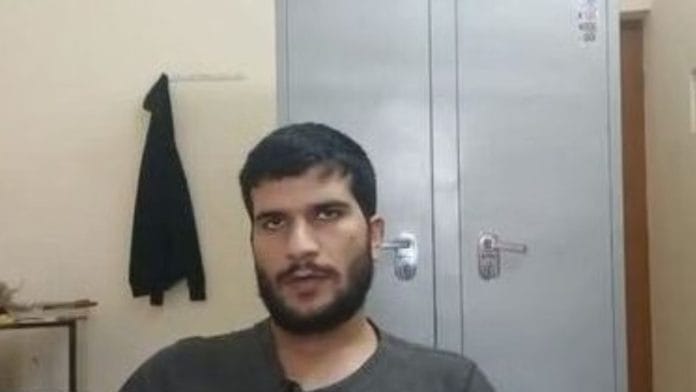There is a video floating around showing the alleged Delhi car bomber, Umar Un Nabi, justifying suicide bombing. It is not clear whether he wanted the video to be released or whether he was rehearsing remarks for a future video or speech. Either way, there seems to be no doubt about the authenticity of the video, which was retrieved from a phone used by Umar.
We will come to suicide bombers and their justifications to themselves in a bit. But my first concern is with a controversy that has broken out on social media and reached the government: should a video of a terrorist justifying his actions be so widely disseminated? Or should we prevent people from posting it on X, Facebook, WhatsApp, etc?
Those who do not want the dissemination of the video use many arguments. The most common one is the fear that letting Umar’s words be heard might inspire others to follow his example or, at the very least, radicalise young Muslims. Frankly, this is a non-starter given how strange Umar seems in the video and how disjointed his words are. This is no inspiring holy warrior: just a nutcase preparing to murder innocent people. Anybody who is radicalised by this video has to be fairly radical to begin with or even a bit of a nutcase. And a nutcase will find inspiration in anything. Ban this video, and something else will be used as a justification for radicalisation.
But there is a stronger, second argument. Most people who are drawn to this kind of terrorism look for glory both in this world and next. If he had continued with his normal existence, the vast majority of people would never have heard of Umar Un Nabi. Now we are all talking (and writing) about him. By running his video, are we giving him the fame he sought? Will this encourage others to find glory in death?
Moreover, we all accept that the normal rules of free speech may be restricted in cases of terrorism. For instance, most TV news channels around the world will refuse to telecast videos showing executions of hostages made by groups like ISIS.
Even in India, media outlets will not show inflammatory videos by extremists calling for carnage, violence, or even secession. And the government will ban channels that seek to inflame minority sentiments by spreading fake news.
Does the Umar video fall into this category?
Out in the open
There is a counter view that is as strong. We should limit free expression only in the rarest of cases. The ravings of a dead nutter do not constitute a danger to public order. On the other hand, if we suppress the video, it might lead to public misapprehension. People might think that the Red Fort bombing was the work of a large international conspiracy. Minorities may be told that the contents of the video were so damaging to the government that it had to be banned.
My own view is that there are no hard and fast rules when it comes to media and terrorism, except for the obvious one: deny terrorists what former UK PM Margaret Thatcher famously described as ‘the oxygen of publicity’ if you believe it will help protect public order. But if an attack has already been launched and if the perpetrator has been identified, then you risk being accused of orchestrating a cover-up if you try and suppress information.
But these are not easy decisions to make, and each situation calls for a response that is calibrated to the circumstances of the attack. In this case, the video should be online. Otherwise, it will surface on radical sites anyway and will achieve unnecessary notoriety.
Also read: India’s much-maligned intelligence agencies are our only hope against terror attacks
Haram in Islam
One more point needs to be made. On the whole, I am saddened by the spectacle of Indian Muslims being required to publicly announce that they disapprove of terrorism after every attack. Of course, they disapprove of it. Don’t most Indians?
By requiring Muslims to prove their patriotism to Hindus (which is what this amounts to), we are giving the extremists what they want—creating a wedge between communities and damaging the ideas that this country was founded on.
Despite all my reservations, I am glad that Indian Muslims have debunked the idea that suicide bombings are integral to Islam. A suicide attack, even one carried out in the name of religion, is not a religious act. It is a political act. The Liberation Tigers of Tamil Eelam (LTTE) used suicide attacks to far greater effect long before we were told that such attacks were part of Islamic dogma.
We need to remind people again and again that suicide bombers are cowardly murderers, not holy warriors. So I was pleased when AIMIM MP Asaduddin Owaisi posted, “Suicide is haram in Islam, and the killing of innocents is a grave sin. Such acts are also against the law of the land. They are not ‘misunderstood’ in any way. This is terrorism and nothing else.”
Other Muslims have made the same point in India, just as they have done all over the world. Suicide is un-Islamic, which is why terrorists don’t like being called suicide bombers and pretend that they are martyrs instead.
Of course, they are not martyrs. They are deluded scum. And it’s important that we see them for what they are. Anyone watching the video of Umar will recognise that he is just another dangerous nutter seeking religious justification for his murderous instincts.
The conflict between free speech and transparency on the one hand and national security on the other is always difficult to handle. But ultimately, it is almost always better to err on the side of transparency than it is to take the side of suppression or censorship.
Vir Sanghvi is a print and television journalist and talk show host. He tweets @virsanghvi. Views are personal.
(Edited by Ratan Priya)






